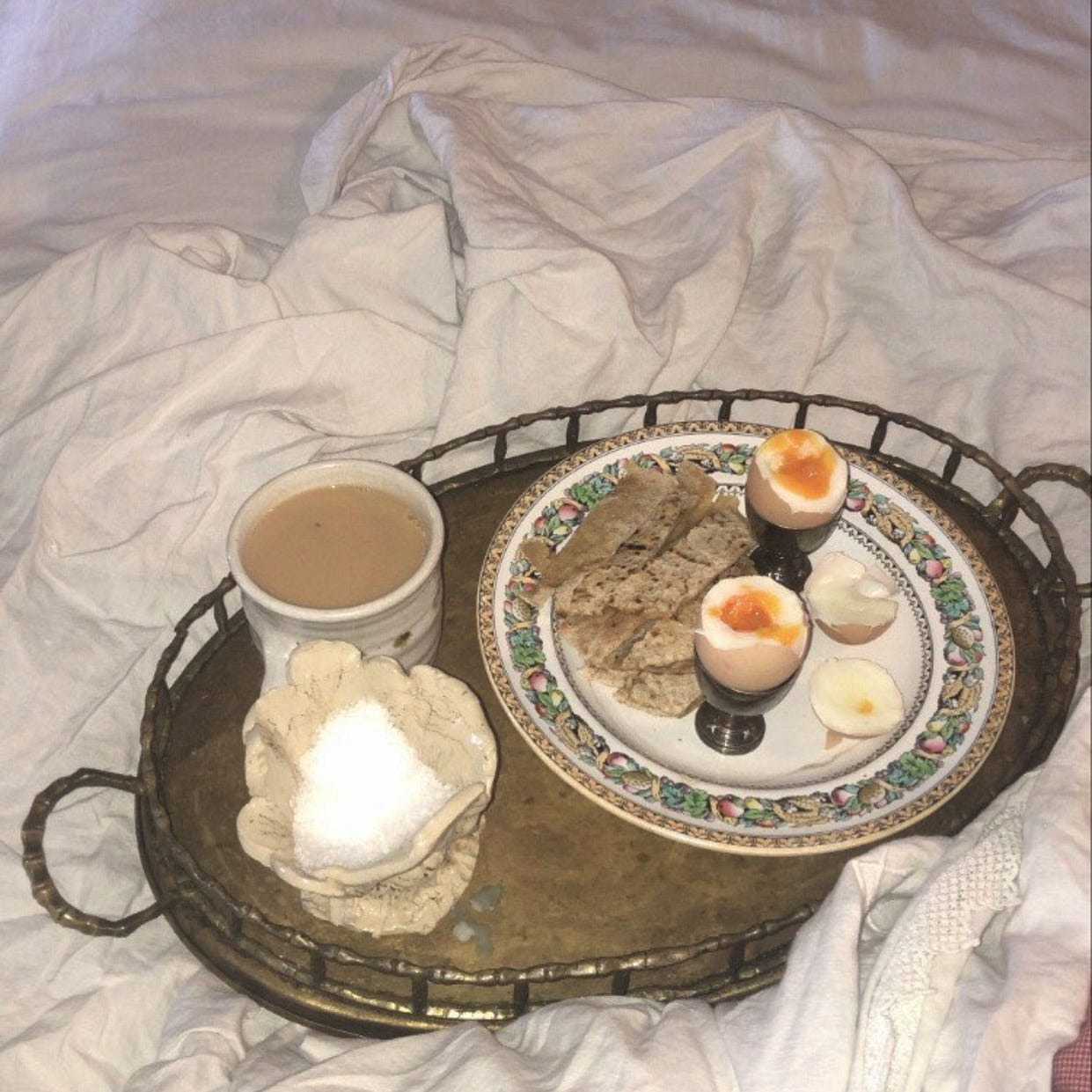When I was little my grandma, a very proper person, would lay the table for breakfast — a magic trick, I felt, as I crept in pyjama’d and sleepy. A boiled egg would arrive. “Off with its head!” she’d cry as I drove my knife through its shell. That this was always the unspoken execution …
Keep reading with a 7-day free trial
Subscribe to Greed to keep reading this post and get 7 days of free access to the full post archives.



